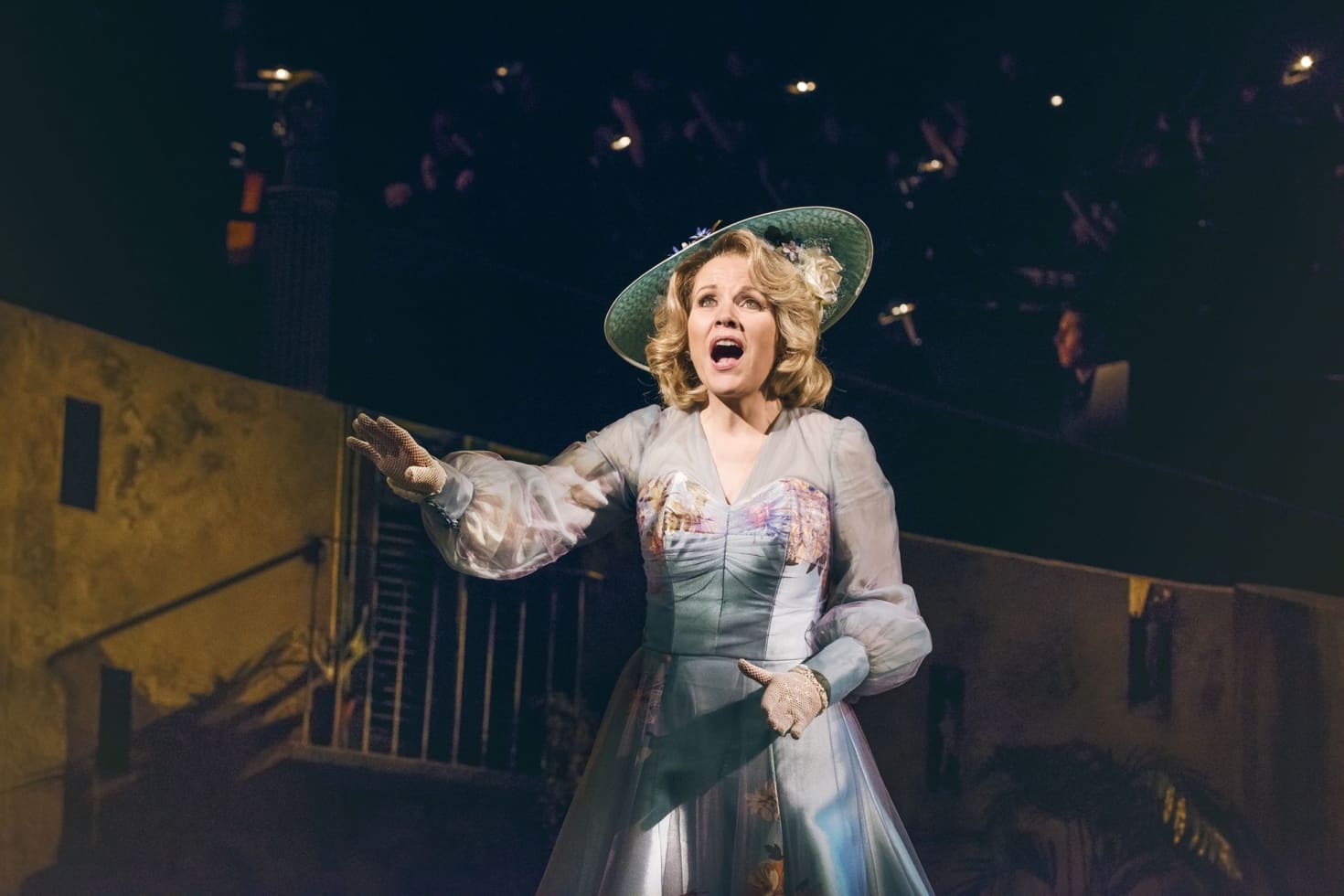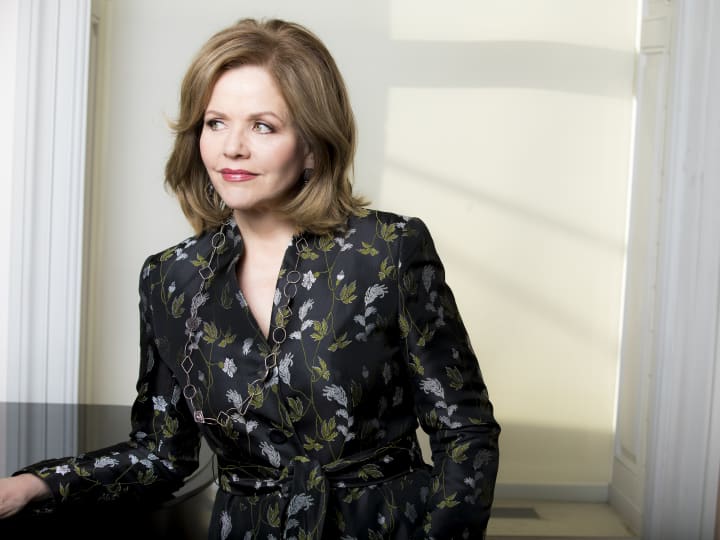A Voice for All Seasons
We asked Renée Fleming, one of the greatest sopranos in the world (and Margaret Johnson in our highly anticipated production of "The Light in the Piazza") about traversing the border between opera and musicals.
Interview by Edward Seckerson
When did The Light in the Piazza first cross your radar?
I actually heard it at Lincoln Center during the Broadway run with Victoria Clark and Kelli O’Hara. It was an incredible cast and I loved it immediately. It’s an interesting story that’s extremely well told, and the music is rapturous.
In music theater, it’s a very fine line between musicals and opera. The Light in the Piazza is that most refined of hybrids that gravitates between two worlds.
Even vocally there are characters in the show who have to be operatically trained because of the range and the requirements of the writing, and there are those who don’t. I think it is a perfect bridge. There are lots of pieces like that and I think increasingly in the U.S. they’re finding homes in performing arts centers and opera houses. We just produced West Side Story at the Lyric Opera of Chicago and it’s the greatest-selling piece in the history of the opera company.
Adam Guettel’s first masterpiece, Floyd Collins, totally immersed itself in that Kentucky setting of bluegrass music. Piazza is just so Italian…
Yes, and even within Piazza there are different styles—almost contemporary classical writing by tonality and the complexity, and then you also have absolute pop numbers. So, there’s a wide variety within this piece.
There’s a terrifying sequence where Clara’s trying to find an address and the stage direction is that she keeps seeing these sinister figures. It’s quite a moment.
That’s an extreme scene and the one we just rehearsed is also, where Clara is having a meltdown. Clara has more of the challenging writing—the writing for my character is evocative and wonderful, but there’s no hysteria in Margaret’s music. What I love about this character is the fact that she’s a mother, that she is dealt a very complicated hand and that she has to sort it out herself alone in Italy. For the time, for 1953, it is quite an extraordinary story.

Photo credit: Dewynters, London
Without giving out spoilers, her own marriage is in trouble and there’s a generational element to this, because she’s looking at her daughter in this innocence.
And also, that her daughter’s fallen in love, that Clara and Fabrizio are very much in love. Italy is an inspiration for this, the beauty, the being away from home, the sense of adventure… Italy is a very important character—in a way, it’s a protagonist in the piece. So, there’s possibility everywhere. Margaret gradually discovers what the situation is and really figures out how to manipulate it. I was thrilled to find a lyric soprano character with so much complexity.
There’s an extraordinary song at the fulcrum of the piece, ‘Dividing Day’, which kind of underlines her marital issues. I think it is so extraordinary—so understated and devastating.
Yes, it’s true. Adam was worried that the title was maybe too convoluted. But it makes you stop and think, “what does that mean, ‘Dividing Day’? What part of this relationship was divided?” She’s asking, when did it happen? How did it happen? It happens to so many relationships, especially long-term ones—people grow apart, and that’s very much what this song is about. So, it hits home with the audience. It’s something many people experience. It’s not the razzmatazz that one typically expects from musical theater.
As someone who is used to the operatic stage and no amplification, are there vocal adjustments to be made or not at all?
Some portions of the role actually sit a bit low for me just in terms of tessitura. But in those same numbers it still goes up into higher registers. Because it’s intimate, you can’t push to make a lot of sound—you want to be correct stylistically. So we allow the microphone to do the heavy lifting of this music and also to blend it. It’s a completely different world now.
There is an almost improvisational feel to some of the writing. Adam, I think, loves to journey more than to arrive. It’s that spinning quality of his lyrics. That must lend itself to your kind of voice, even if you have to make those adjustments, even if it is on the low side.
It’s remarkable, the beautiful complexity of what he’s written, the number of modulations and things going where you don’t expect them to go, harmonically speaking. It’s a very cultivated writing. I’m so impressed with his work. And with Craig, the two of them have created something very special. Adam, the lyricist, is interesting because it’s not exactly the same voice as Craig’s voice, but they complement each other perfectly.








